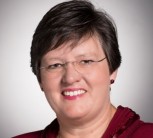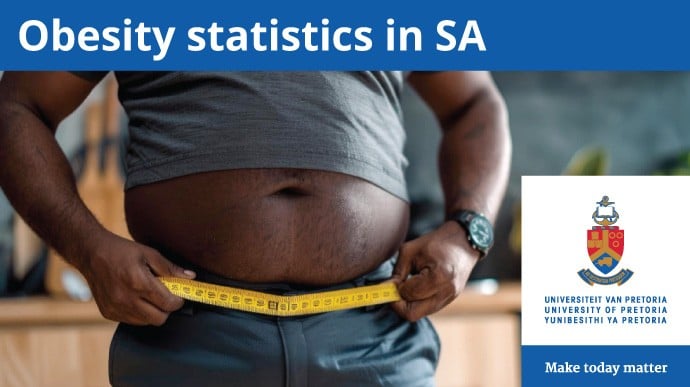A common challenge for researchers nowadays is getting their research beyond the confines of academia and having it applied in practical contexts and situations. The University of Pretoria (UP)'s Institute for Food, Nutrition and Well-being (IFNuW) is involved in an international programme working towards bridging this gap by bringing researchers and the media together to drive policy change in food security.
This initiative by the IFNuW, the International Food Policy Research Institute (IFPRI) and Michigan State University, in partnership with Malawi's Ministry of Agriculture, is funded by the United States Agency for International Development (USAID).
A week-long training programme was held in April in Blantyre, Malawi, which sought to convey technical and policy information to journalists and editors about policy change in food security. The aim of the programme was to build the capacity of journalists and editors in driving and supporting policy change. Participants came from a range of media, including radio, print and television. 'We have the potential to change our society into a food-secure nation. We are policy drivers!' stated one journalist during a training session.
IFNuW's Director, Prof Sheryl Hendriks, served as co-facilitator with Dr Suresh Babu, Head of Capacity Strengthening at IFPRI. Elizabeth Mkandawire, a PhD candidate under Prof Hendriks' supervision, was a researcher on the team and presented two sessions. 'It is seldom that academics get to experience the immediate internalisation and application of their training as reflected through the stories presented by these 27 enthusiastic journalists during the final session,' reports Hendriks.
During this time, the research team was able to apply a recently developed tool for policy analysis, the Kaleidoscope Model for Policy Change. While training journalists on the foundations of food security theory, researchers applied this model to nutrition policy in Malawi. The sessions were facilitated by experienced and internationally recognised experts in food security, policy and communications from the partner institutions. 'Unless the journalists understand the broad policy process in a country and specific policy context, the reporting of the issues, problems, and solutions cannot be made more decision-friendly,' said Dr Babu.
The media pieces prepared by journalists who attended this programme demonstrated a far deeper understanding of food security, nutrition and how to report accurate, well-researched and balanced media reports. Their pieces conveyed critical information and the journalists are now better equipped to influence policy change by changing the knowledge and attitudes of the target audience. This is sure to lead to changes in practice.
The researchers, officials and journalists all concurred that more sessions of this nature are needed to share knowledge, build a deeper understanding of policy issues and put research into the public domain. What better partners than journalists to move science into action as a driver of policy change?
Reflecting on the trip, Mkandawire says: 'It was encouraging to see how the training empowered journalists to realise the level of influence they have and the various ways in which they can influence policy change. It was an inspiring group to work with because they identified with the issues that were raised. Their ability to apply the lessons to their assignments showed that they were really engaged.'
See related photo on the right sidebar.
Prof Sheryl Hendriks, Elizabeth Mkandawire
May 19, 2016

Professor Sheryl Hendriks completed her undergraduate studies, honours, master’s and PhD at the former University of Natal, where she also taught until joining the University of Pretoria (UP) in 2010.
Moving to UP expanded and enhanced her research, not only because of the geographic proximity to government but because it allowed her to network with colleagues at UP, in Africa and internationally. Prof Hendriks says that the University’s reputation as well as UP management’s support of transdisciplinary research have been invaluable in advancing her research profile, impact and reach.
Research in food security policymaking is essential to achieve the Sustainable Development Goals (SDGs) and advance development. Understanding the causes, outcomes and impact of policy decisions related to a range of sectors (agriculture, health, trade, welfare etc.) helps to identify potential policy choices, combinations and directions. Ultimately, these decisions determine the levels of poverty, inequality and food insecurity experienced by households.
Prof Hendriks leads a large research group that explores the emerging field of improving food systems to ensure fairer, healthier diets and sustainability. The group includes postgraduates and colleagues from UP’s Department of Agricultural Economics, Extension and Rural Development in the Faculty of Natural and Agricultural Sciences (NAS), and connects with colleagues in networks across Africa and beyond. Under the RETHINK@NAS initiative ¬– which allows for University-driven community projects that support transformation in all its forms – this group will expand across faculties.
This work was carried out in Prof Hendriks’s role as a member of the United Nations Food Systems Summit (UNFSS) Scientific Group and contributed a significant analysis to guide the group’s 2021 deliberations and plan of work. It will also expand to supporting the country implementation of actions to support the true value of food. The work was inspired by Prof Lawrence Haddad (leader of the UNFSS Action Track on ending hunger) and Prof Joachim von Braun (chair of the UNFSS Scientific Group).
Prof Hendriks says that since 2006, her academic mentor has been Dr Ousmane Badiane, who introduced her to the dynamics of African development and has provided her with countless opportunities to work directly in applying research in practical support to African governments as they seek to achieve food security. “Through my engagement in various think-tanks and policy engagements, I find meaning in life – contributing to decisions that can improve the lives of ordinary people,” she says. “This is a dream come true for me.”
Young people interested in following her field of research need to be passionate about helping others and acutely aware of the bigger picture in development, Prof Hendriks advises. Food security analysis can be attempted only at postgraduate level, she adds, when students have a solid grounding in a relevant field and have developed skills to cope with complex thinking.
When not pursuing research endeavours, Prof Hendriks maintains a rose and herb garden, sews, scrapbooks and walks her dogs.
 Story
Story
University of Pretoria (UP) researchers have found that the antioxidant content of certain types of tea can be likened to that found in recommended portions of fruit and vegetables.
 Infographic
Infographic
Half a cup of black tea, oolong tea or green tea contained the same amount of antioxidants with radical scavenging capabilities (RSC) as that of a 200mg vitamin C tablet.
 Infographic
Infographic
The prevalence of obesity is a significant concern, with recent global statistics showing that one in eight people worldwide are living with obesity. In Africa, the situation is more dire, with one in five adults affected; in South Africa, the figure is even higher, with one in four adults living with obesity.
Copyright © University of Pretoria 2025. All rights reserved.
Get Social With Us
Download the UP Mobile App